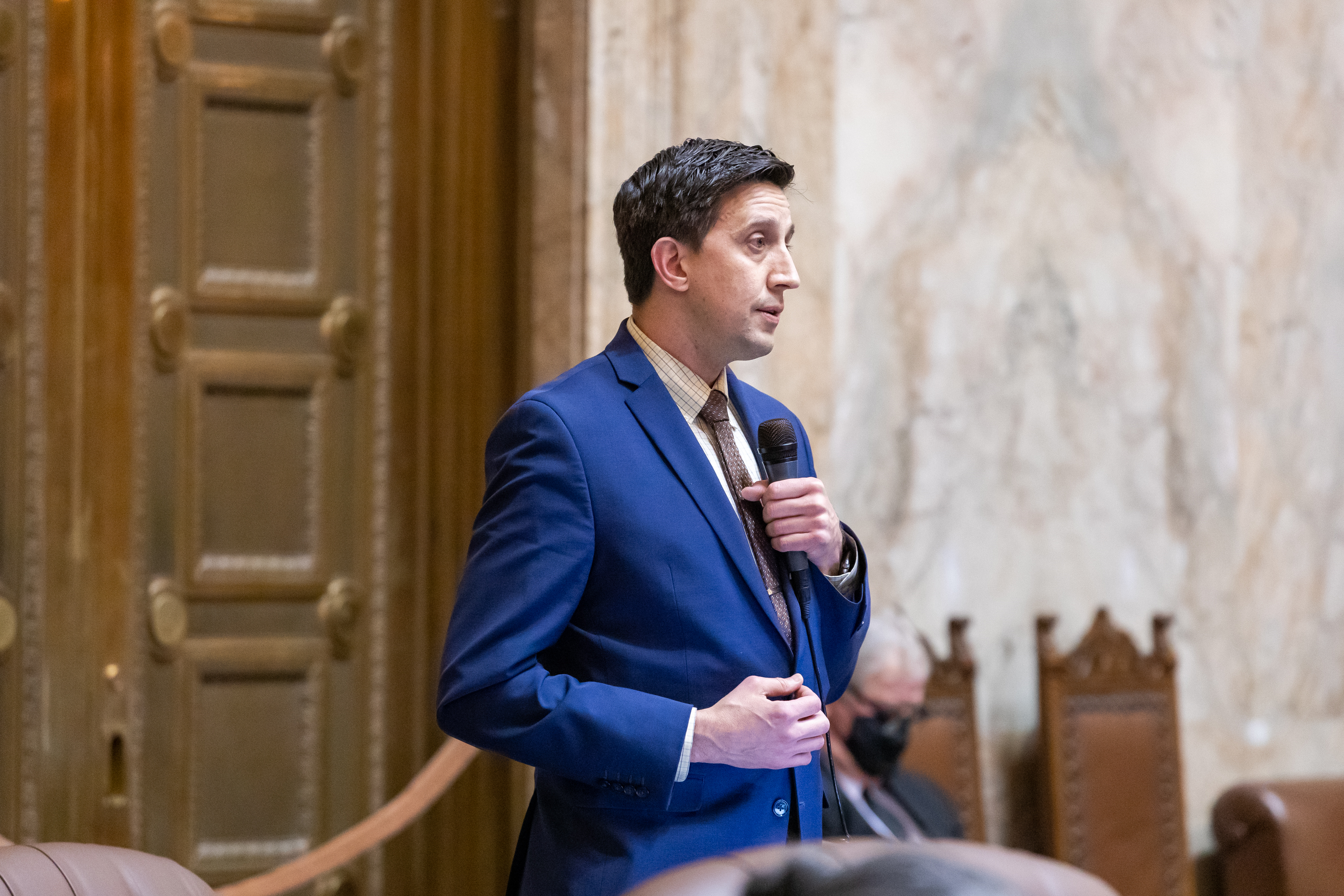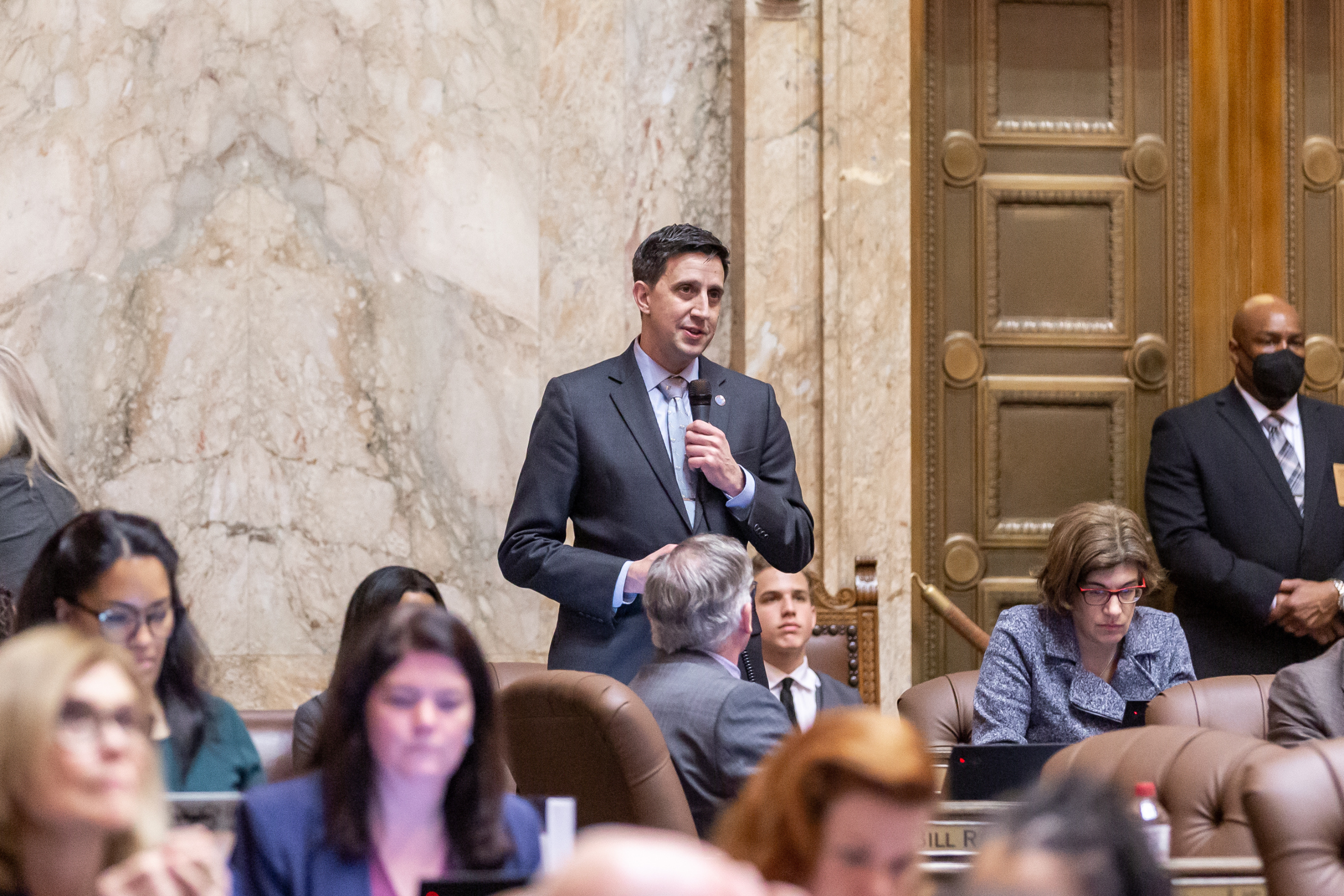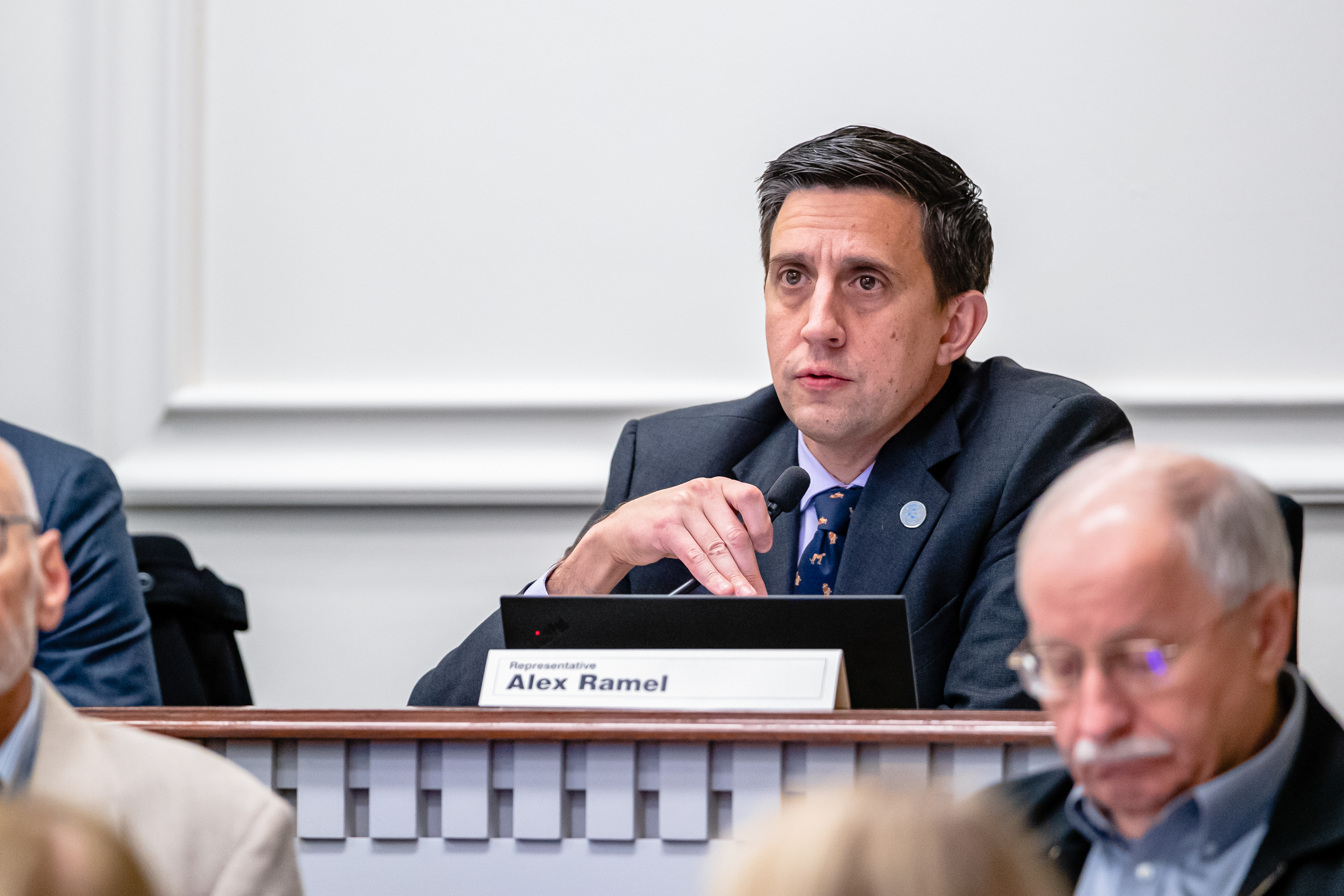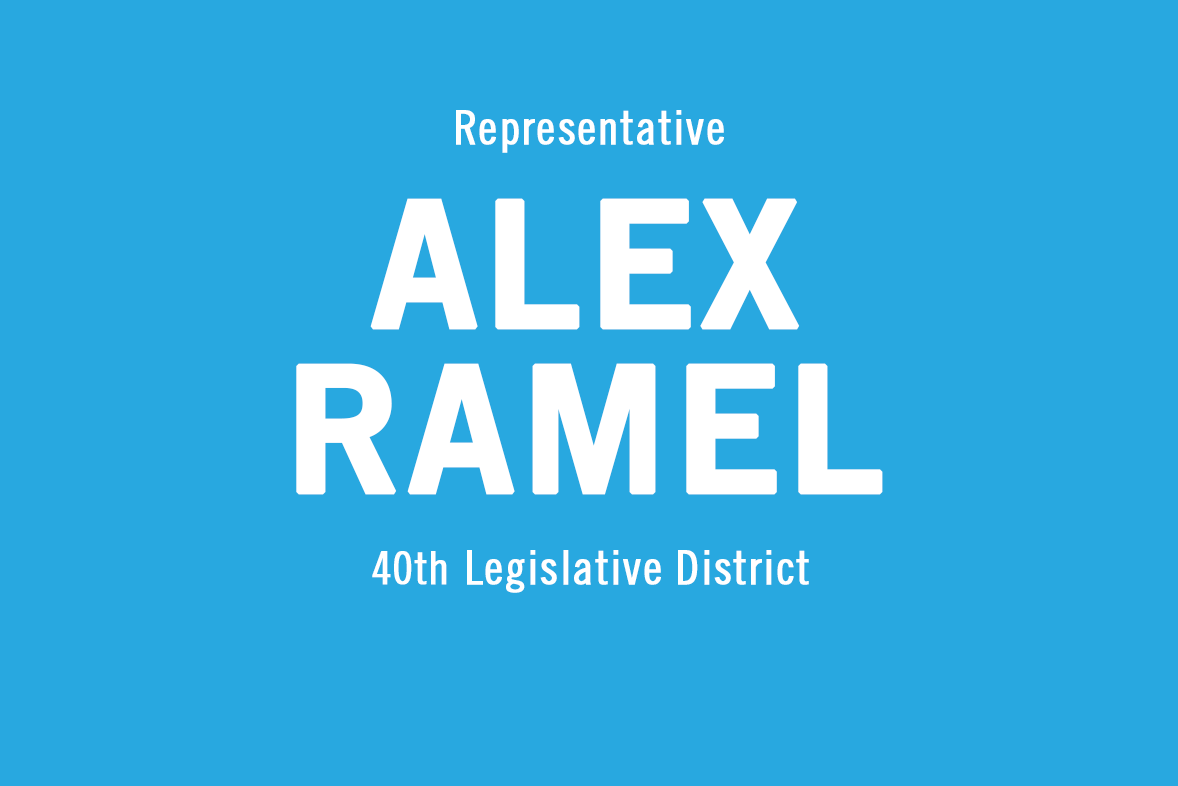Cascadia Daily News – Legislative preview: To balance budget, it’s time to talk about progressive tax reform
By Representative Alex Ramel
There are a lot of big changes coming to Washington in January. Governor Elect Ferguson’s inauguration will be the first time we’ve had a new governor in a dozen years. The balance of power in the legislature remains similar, voters across Washington elected one more Democrat in each chamber. However, both chambers have seen many members move on, and there will be many new committee chairs and voices in leadership.
All of these changes are happening against a backdrop of uncertainty around the Trump presidency, and for good reason. The tariffs, mass deportations and provisions of Project 2025 signaled by Trump would have real impact on the lives of Americans. What will all this mean for people in Washington?
The 2025 Legislative Session begins on January 13th. This will be a “long” (105-day) session, where we will write a new two-year budget. The budget will be the center of most policy discussions and how we prioritize our values.
Washington’s budget writers are required to create a balanced two-year budget and a four-year budget outlook. This means that forecasted revenue over for the next four years must meet or exceed expenses.
You may have heard that we face a significant budget deficit this year. Here’s what I know: this summer, quarterly economic forecasts began to indicate that tax revenues were growing more slowly than anticipated. Because of the 4-year budget outlook, small changes have big impacts to the bottom line, especially alongside growing costs and inflation. We are facing a gap of about $10-12 billion. Addressing that gap will require a mix of solutions including improving efficiency, reducing or eliminating budget items that aren’t working, some new programs may be delayed, and we’ll need progressive tax changes.
Governor Inslee has already instituted a hiring moratorium, and agencies are compiling a list of cost cutting options. But as we identify savings measures, voters should be weary of those who say our challenges are only a “spending problem”. Imagining that we can balance the budget exclusively with $10 billion in cuts to services is magical thinking.
Cuts of that scale would upend early childhood education; devastate healthcare by eliminating protections for our most vulnerable people; increase homelessness by reducing affordable housing; and gut college and university funding leaving tens of thousands of young people with ballooning debt. Such an approach would be irresponsible, immoral, and disproportionately burden lower and middle-income families. At a time when Washingtonians will need added protection because of the likely impacts of Trump’s Project 2025, we need real solutions.
We need to take bold steps to address our upside-down tax code. Washington’s taxes are among the most regressive in the nation; those with the least income have paid the highest tax rates, while those with the most have paid the least. This imbalance contributes to the instability in our revenue. For example, sales tax is highly dependent on small changes in the economy and is paid disproportionately by lower income Washingtonians.
Voters’ overwhelming rejection of the initiatives last fall shows us a clear path forward. I-2109 was a referendum on the capital gains tax. It asked us whether people who have a gain over $250,000 a year selling stocks and bonds should contribute more toward childcare and schools. Voters affirmed that they want the wealthy to contribute to these services by a vote of nearly two to one. And we should listen to the voters’ mandate.
Outgoing Governor Inslee has proposed a modest wealth tax on stocks and bond holdings in excess of $100 million dollars, an idea I have supported in the past. Others are suggesting a corporate high-earners payroll tax on companies with employees earning more than $180,000 year. I’m looking forward to a healthy discussion about these and other alternatives.
My bottom line for tax changes is that low-, moderate- and middle-income Washingtonian’s must be better off. I will always protect and support small businesses. Increases in sales, B&O, or property tax would fall disproportionately on those with the least, while letting those with the most money continue to get away without contributing their fair share. I won’t support taxes that would make our system more imbalanced and inequitable.
Over the past few years, I’ve been proud to help increase funding for early childhood education; special education and support staff in schools; mental health services; and affordable housing. I hear over and over from voters who experience the benefits of these investments. Progressive revenue will allow us to protect this work, and continue to build a safer, healthier and stronger Washington.
As we progress through this legislative session, please know that I am here to listen to and serve you. Whether it’s by email or coming to Olympia, I hope you stay engaged and to hear from you soon!
Alex Ramel is State Representative for the 40th Legislative District which includes parts of Bellingham and Mount Vernon, as well as Burlington, Anacortes and the San Juan Islands. He has served since 2020 and is the current House Majority Caucus Whip.



